This story has been updated to include information about students successfully emailing parents from student accounts.
High school administrators outlined how the phone policy adopted by the Board of Education July 2 will be implemented during an Aug. 13 parent meeting in the large auditorium.
About 75 families attended, according to Principal Eric Juli.
The district will use Yondr pouches to manage student cell phones and electronic communications devices during the 2024-25 school year. Yondr pouches are small fabric bags that are locked and unlocked with a unique magnet.
The policy complies with House Bill 250, which Gov. Mike DeWine signed May 15. The law requires public schools to enact written policies that restrict student cell phone use during school hours by July 2025. The district began researching and drafting its policy in 2023.
Students will be responsible for bringing Yondr pouches to school daily. Lost or damaged Yondr pouches will incur a $30 replacement fee.
Parents who attended the Aug. 13 meeting expressed support for Yondr pouches, as did those who attended meetings about the draft policy last spring. The replacement fee will teach students responsibility, parent Aaron Pettis said in an interview. He also said that he looks forward to the policy because he won’t have to monitor his child’s phone as much himself.
At the beginning of the day, students will be expected to display their student ID and their Yondr pouch, with their phone and other electronics locked inside, before being granted entry to the building. Students who do not bring a phone to school will not have to display the pouch, and students will not be searched.
“We certainly have students who do not have cell phones,” Juli said during the meeting. As for students who lie about possessing a phone when they get to school, Juli said, as long as those phones remain in backpacks, powered off, all day, no consequences will ensue.
Students will carry their Yondr pouches throughout the day, but they will be unable to access devices locked inside. When the school day ends at 3:10 p.m., students will be able to unlock their devices as they leave the high school. Outside the building, 12 to 15 magnets designed to unlock the pouches will be installed near four exits: the main entrance/exit; the lower cafeteria patio; the Aldersyde Drive exit by Room 110; and the auditorium exit into the north parking lot.
Students who arrive at school with a phone or other devices but without a Yondr pouch will have their devices stored in a safe in the textbook office and will receive a receipt that fits into their ID sleeve. The receipt will document their name, the date, their signature and a dean or assistant principal’s signature.
Because this process will make students arrive late to the first class of the day, students will make up for lost instructional time by attending conferences after school. Alternatively, they can attend after-school detention. Juli said that he prefers that students choose to attend conferences.
Either way, those students can retrieve their phones at 4 p.m. if they have their receipt, signed by the teacher overseeing the conference or detention, to verify that they attended.
Personal devices that do not fit in the pouches are prohibited and will be confiscated until dismissal.
Some meeting attendees asked about communication between students and families.
“We are not trying to separate you from your child,” Associate Principal James Dubsky said. Parents wishing to contact their children should call the main office to relay their message, which will be delivered to the student either by email, or as a handwritten note if urgent. In an emergency, students can unlock their phones in the office, or use a school landline to contact their families.
Students can also email their families directly, and are able to do so with their school-issued Chromebooks. Students who tested the capability after the meeting successfully sent email messages to their parents’ addresses and received replies from those addresses.
Extracurricular activities that run from 3:10 p.m. to 4 p.m. will operate under the same restrictions as the rest of the school day. However, phone use may be permitted at activities that begin after 4 p.m. such as theater rehearsals, at the adviser’s discretion. Unlocking stations will also be installed near locker rooms and at entrances to athletic fields.
“There is no intent to have students using locked Yondr pouches at athletic practices,” Juli said in response to a Shakerite email inquiry after the meeting.
Assistant Principal Lisa Demkowicz said during the meeting that parents also have a role to play in the new policy by reminding students to lock their phones before school. “We’re trying to help our students, because the distractions prevent them from learning,” she said. Juli also said that parents can help their children get used to going longer periods without a phone before the school year starts.
Consequences will become more severe with repeated failures to secure items in the pouches and display them upon arrival. “Students who are actively attempting to work around the policy will always have their phone kept in a locked cell phone safe, and the student who forgets one time will have their phone kept in a locked charging station. The one-time forgetter can retrieve their phone at 3:10,” Juli said in his email response.
“Given that this is a health and wellness initiative, we’re teaching a lot of the consequences as reteaching opportunities,” Dubsky said during the meeting. “We’re going to spend a lot of time during the first several days of school to teach the expectations.”
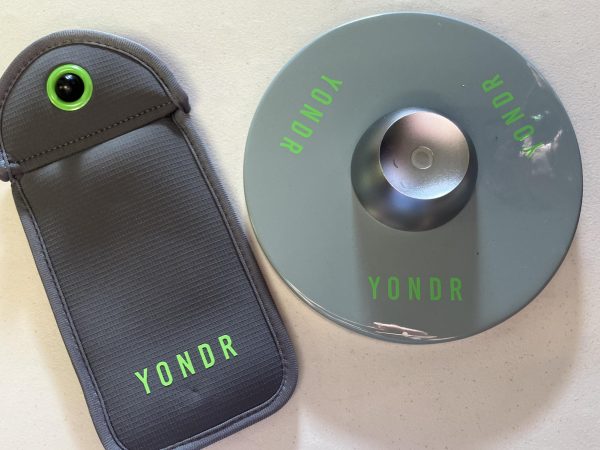
Consequences for repeatedly violating the policy will include activities that teach the harmful effects of phones; meetings with a parent or guardian to create a plan to manage the student’s phone; and suspension.
Parent Fred Schumacher said that the policy is well thought through and flexible, and he is “cautiously optimistic” about it.
Parent Marquita Oliver said that she attended the meeting so she could ensure that her children comply with the policy. She said that the policy will help students focus.
Juli said that some students will struggle with not having access to their phones, an issue that other school districts that observe similar policies have faced. “It is very difficult to go from having an iPhone attached to me all the time, to having it in the Yondr pouch for the entire day,” he said.
Said Juli, “I think it has the potential to go very well, but I also fully expect this to be really challenging at the beginning.”
Vijaya Sadler contributed reporting to this story.

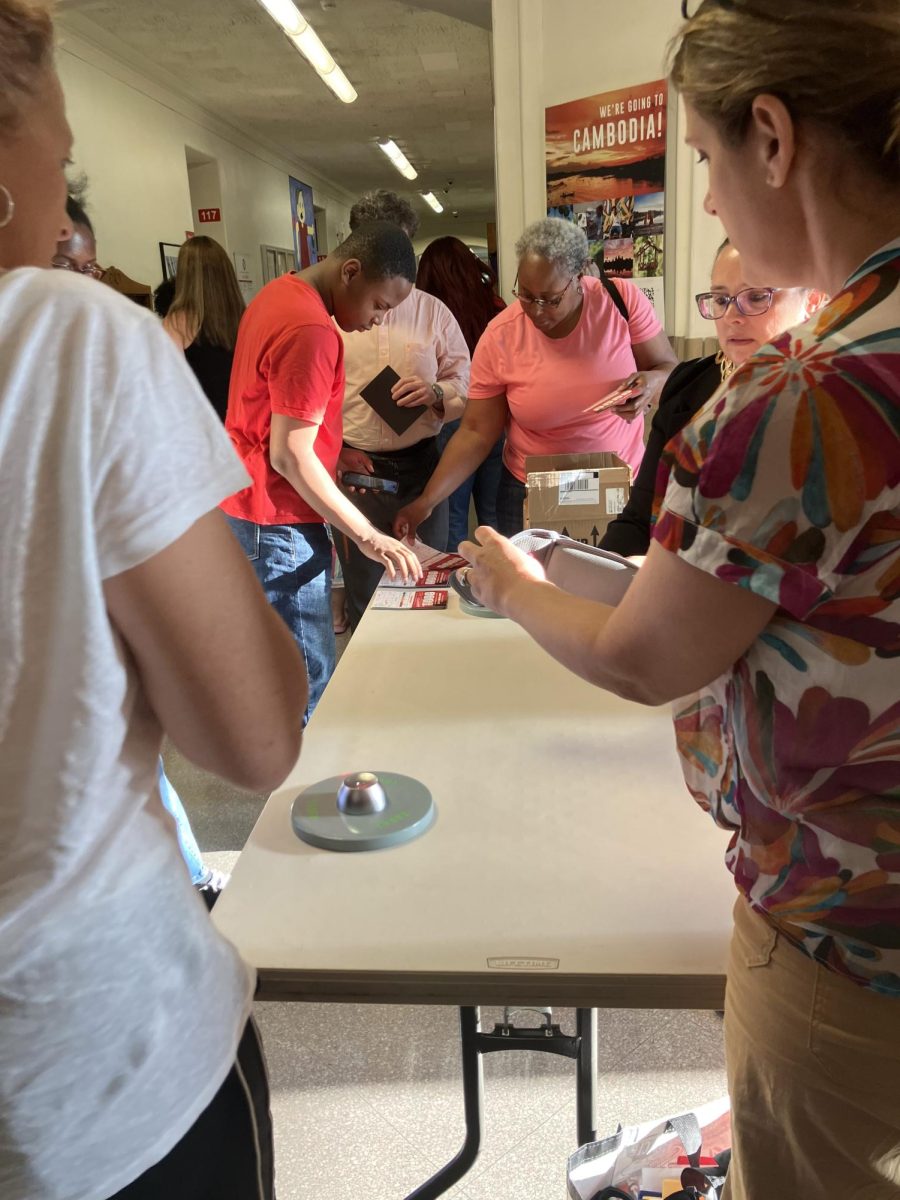

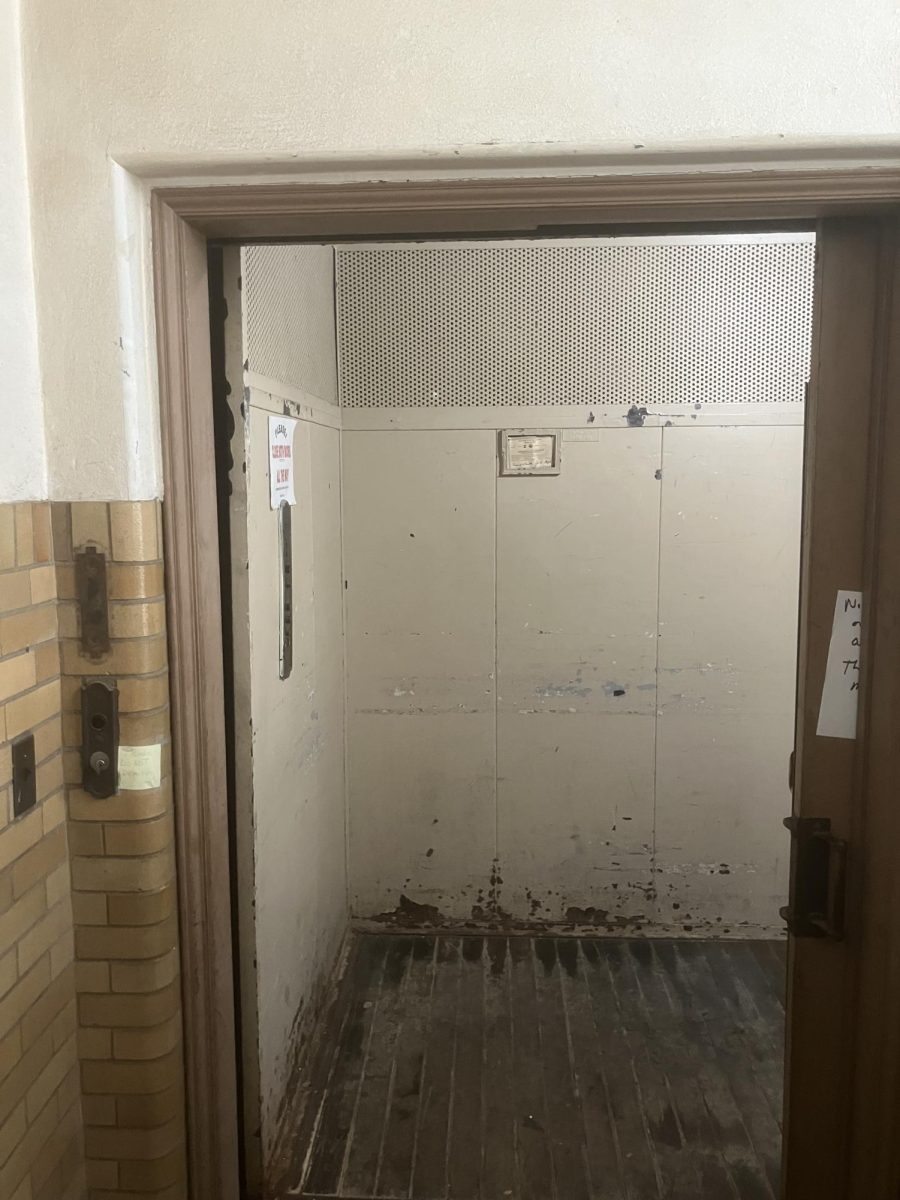








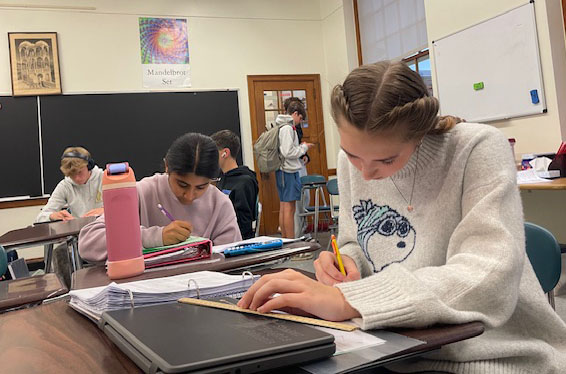
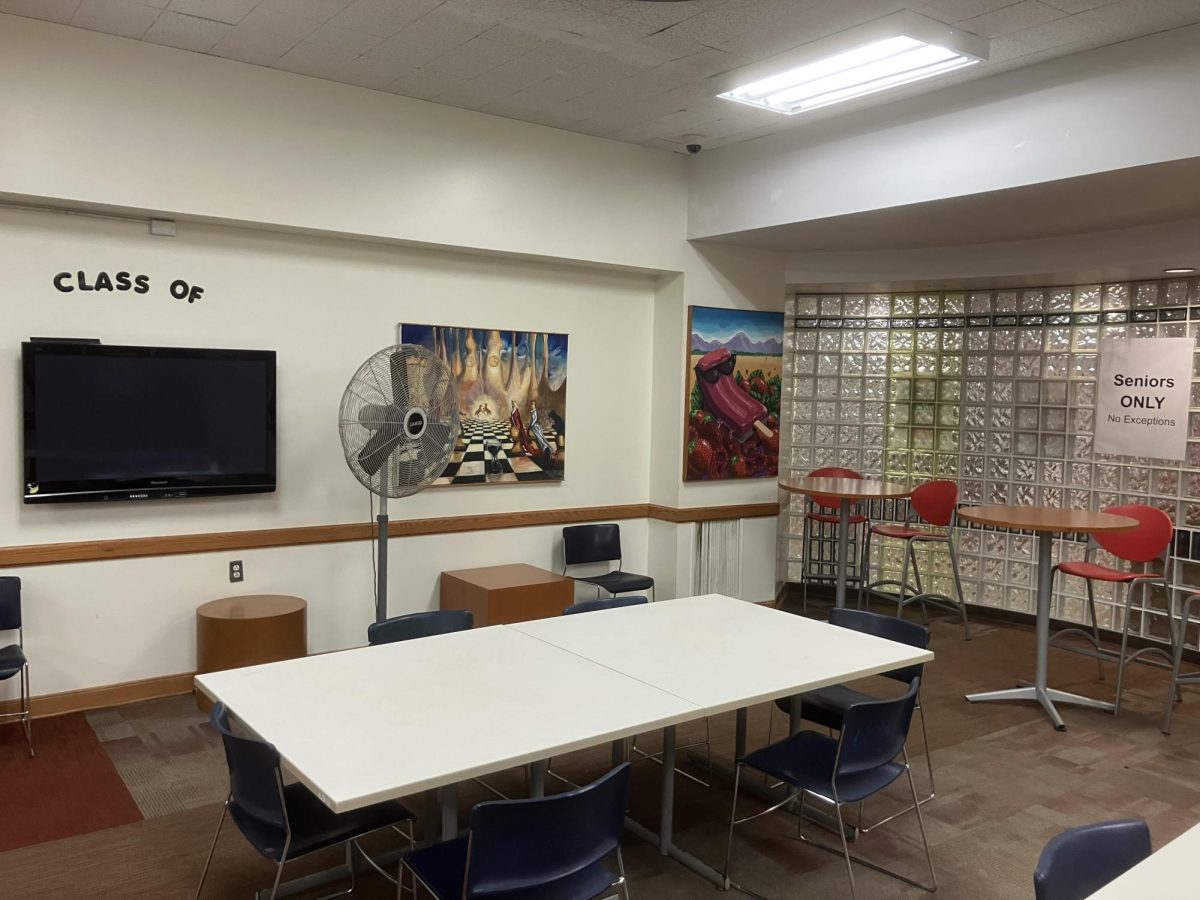
Katherine Rogerson | Aug 17, 2024 at 1:13 pm
Great article !
Francis S. Key | Aug 17, 2024 at 12:38 pm
Neodymium magnets are $15 on Amazon.
A $15 investment can beat whatever money the district has sunk into this farce.
The administration is not respecting the intelligence of their students, who will solve this in a few minutes.
What a joke.